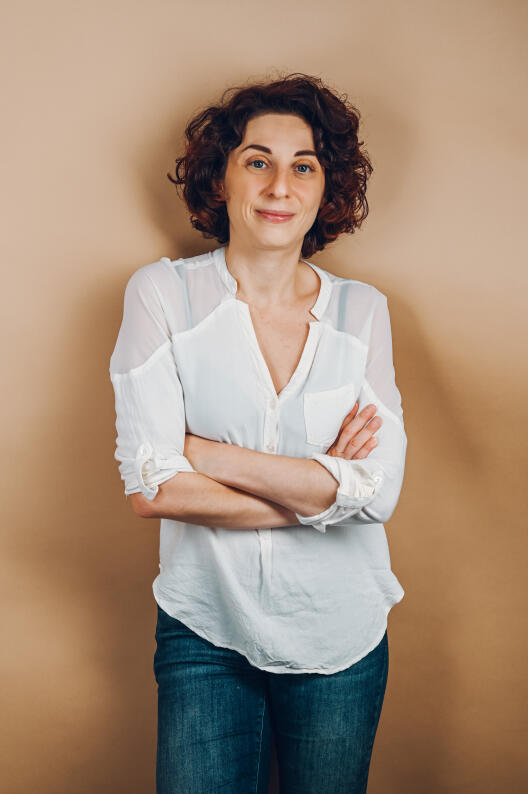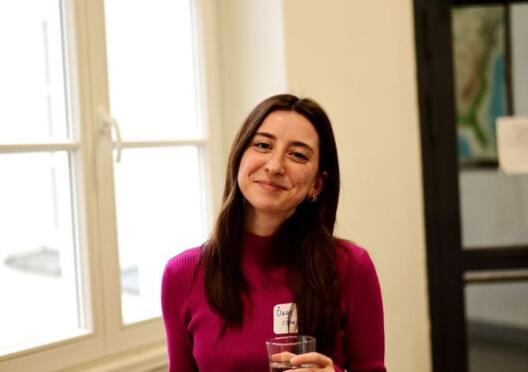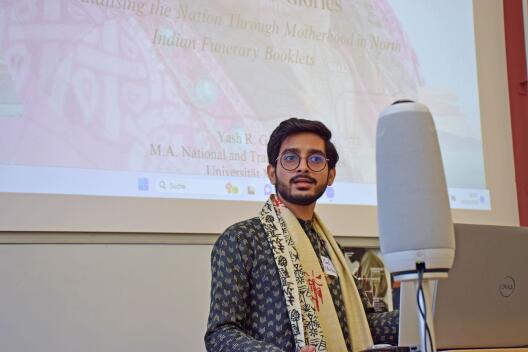Amorphous Bodies: Lecture-Praxis Series in Critical Posthumanist Dis/ability Studies

Crip, critically-abled and Rhizomatic bodies. Hybrid bodies at the threshold of humanity; bodies mutually debilitated and in/complete.
Amorphous Bodies is a lecture-praxis series designed to create a space where the critiques of critical disability studies and critical posthuman studies converge. It strives to acknowledge the shared response-abilities of diverse agencies in shaping the concept of the human—not to transcend the material body, but to redirect our attention to the fluidity and amorphous nature of the flesh. We aspire to foster a critical space for co-learning, guided by scholars, artists, practitioners, and activists in the field. The series encompasses various formats, including multi-modal and experiential sessions, as well as scholarly and artistic lectures. Hosted at the University of Muenster between the 25th of November, 2024 and the 22nd of December, 2024, we seek to create a safe environment where students with dis/abilities and allies can learn from experts and refine their own practices.
The boundaries of the body, its potentials, and its abilities, have been the concern of academic discourse in a range of disciplines. Scholars, particularly in posthumanist theory and critical disability studies (CDS) have long articulated post/dis-human/abled futurities that rearticulate non/corporealites in service of inclusive epistemologies (Braidotti & Roets, 2012; Goodley et. al. 2022). Recent theorizations in these fields have increasingly destabilized traditional understandings of identity and existence, recognizing that bodies are not merely individual, static entities but are deeply embedded in complex networks of relationships, technologies, and cultural narratives.
Yet, despite shared investments in negotiating the boundaries of the body, interactions between CDS and posthuman theory have often been marked by anxieties concerning the trajectories of such theoretical conjectures. For instance, posthumanism’s disavowal of the “human” has drawn critique from dis/ability activists, who contend that such a move raises ethical and political concerns for bodies historically marginalized from the category of the "human" (Goodley et al., 2014). Similarly, posthumanism’s emphasis on speculative and transcendental futures may run the risk of undermining the intersectional struggles and material inequities that CDS prioritizes. Posthumanism, in turn, critiques CDS for remaining too tied to humanist concepts such as embodied identity and the integrity of the human body, suggesting that CDS may inadvertently reinforce normative views of humanity by focusing on recognition and material realities (Grue 2023; Goodley et al., 2014). Posthumanism advocates for a more radical decentering of the human in favour of alternate and hybrid modes of existence (Grue, 2023; Murray, 2023).
Regardless of these disjunctures, we believe there is much to be learned from the convergence of these disciplines, both of which focalize the assemblages of multiple bodies, potentialities, and technologies. These intersections hold bolstered relevance in contemporary contexts of planetary destruction, mass debilitation and perpetual cycle of wars where intentional maiming has become a standard practice under neoliberal political systems that manage bodies for profit maximization (Puar, 2017). Although some may regard this as an abstract conjecture, the interactions between bodyminds, communities, and technologies—central to posthumanist thought—are already realized in tangible ways, particularly among individuals with dis/abilities. However, in following Murray (2023), we do not call for a reduction of people with dis/abilities to ‘cyborgs,’ recognizing them solely through their interaction with technology. Rather, we contend that the ‘activist affordances’ practiced by people with dis/abilities, either with or without assistive devices, already offer concrete instances of the biopolitical contests addressed by posthumanist discourse (Dokumaci, 2023). We locate our project at these intersections, centering bodies that open onto each other, and onto technologies, assemblages and networks.
To reserve a spot for the lectures/workshops, please fill out the following form: https://forms.gle/iJ7PAsuQYeHTALNZ8







